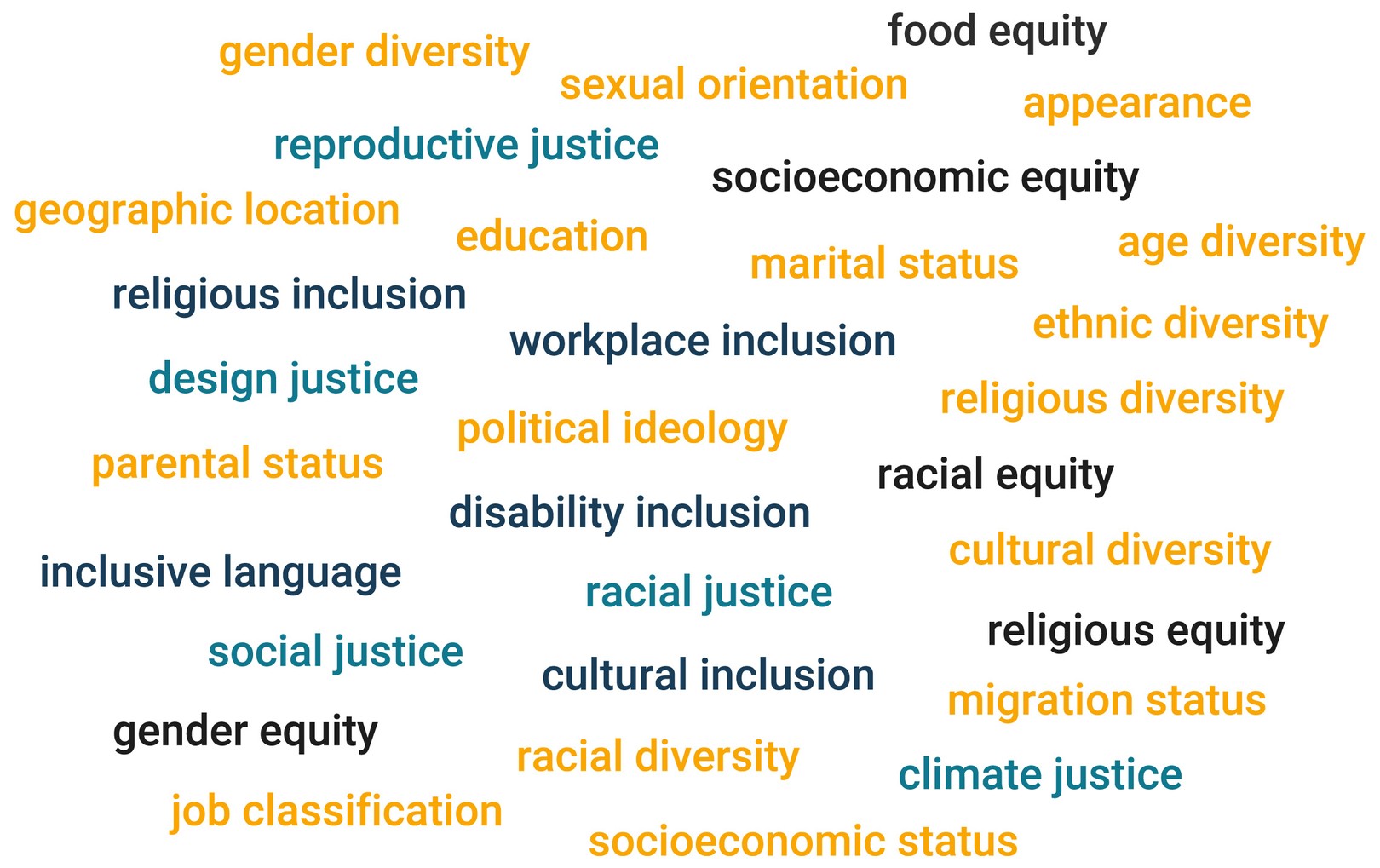What is JEDI?
Since some of our workshops include a reflection on JEDI, this is a question that we often get asked. JEDI stands for Justice, Equity, Diversity, and Inclusion. There are many explanations for these terms. At Smith Assembly, we put a lot of thought into crafting definitions to help people understand each of the concepts as well as the relationships between them, which I want to share with you below:
- Diversity is the variety of different demographics, identities, and conditions within a group of individuals. These differences in gender, race, sexual orientation, education, abilities, beliefs, and other characteristics contribute to an individual’s experience of privilege and/or oppression.
- Inclusion is every individual making intentional choices daily to not only welcome, but also to engage and embrace the full spectrum of diversity within their groups.
- Equity is allocating resources and opportunities in a way that addresses the relative privilege and oppression that different individuals and groups experience.
- Justice is breaking down the barriers preventing individuals and groups from having equitable access to the resources and opportunities they need to live well on their own terms.
Diversity exists within a group of people (a person is not diverse). Inclusion is subjective — it’s each and every person in the group feeling safe, engaged, and like they fully belong (and taking action to help others feel similarly). Equity empowers everyone in the group. Justice ensures that the group’s structure and rules promote equity.
Why do we care about JEDI at Smith Assembly?
Since the inception of Smith Assembly (you can read more about our origin story in this other post), Liz and I have been intentional about making JEDI a pillar of our company’s work. We both care deeply about fighting bias and discrimination as well as promoting equity. This passion is a result of our own lived experiences.
Liz, as a woman in technology, has almost always been one of only a few women (if not the only woman) in her team or company. In her own words…”I’ve been discriminated against, harassed, and/or abused throughout my education and career because of my gender, my neurodivergence, and our society’s unhealthy and often toxic patriarchal and white supremacist culture. As a cis straight member of the dominant white class I’ve benefited from a number of privileges — most notably that I’ve only rarely felt my life was at risk. I shudder to imagine how much worse my experiences most likely would’ve been if my intersectionality had included additional non-dominant identities. Over the past decade, my passion for inclusion, equity, and justice has grown to the point where now my primary focus is to be in service to others. I want to do everything I can to make sure nobody else has these kinds of traumatic experiences. Not just women, but people of all genders and intersectionalities.”
I have made my life’s work to build a more just society. As a latinx cis-woman of color member of the LGBTQ+ community who has spent a third of her life as an immigrant, I’ve had many experiences with oppression. These experiences in many ways fuel my burning desire to create more spaces and pathways towards liberation, by centering and valuing groups who have historically been marginalized. It’s also especially valuable for me to do this work through a platform like Smith Assembly, which aims to use business as a power for good. As somebody who grew up in a family of community organizers, I have witnessed and experienced in my own work how people at the frontlines of grassroots movements are often undervalued, underpaid, and abused. This is why I am passionate about participating in the creation of more sustainable and respectful models through which to do this work.
What is Smith Assembly doing to further JEDI?
We have given JEDI a priority seat at Smith Assembly’s table. Since day one, we have done our best to remain true to this commitment. It’s been a journey of growth for us to do this, and walking the talk makes us feel inspired, satisfied, and motivated. But it’s also been uncomfortable, time consuming, and difficult. We have had to rewire our own mindsets about how business works, and even challenge institutional systems built around money-first instead of people-first models.
I want to share with you a few specific examples of some of the ways in which we have incorporated the principles of JEDI into our our work:
- Analyzing the Diversity of Our Service Providers
We consider ownership diversity of our service providers, which enables us to intentionally support minority-owned businesses. - Applying Inclusion Practices in Our Collaborations
We provide a variety of accommodations to welcome and value diverse language skills, digital competencies, internet connectivity, and cultural work practices. - Supporting More Equitable Workplace Cultures
Our services promote the development of healthier and more equitable workplace relationships in order to create a sense of belonging and psychological safety within teams. - Modeling More Just International Contracting Practices
We provide fair compensation to Global Innovators from areas with limited access to global markets. In addition, we donate 5% of our revenue every year directly to nonprofits that amplify the positive impact these folks have in their local communities.
This is only the start. We aim to continue developing more tools, practices, and resources to help us use business as a force for good, which is why we have also applied to become a B Corp (you can read more about our journey to certification in this other post). We recognize that addressing inequities and injustices in the private sector and our societal systems requires a number of structural and institutional reforms. We all play a role in building a more just society — what’s yours? Let’s chat and learn from each other! Contact us to start a conversation.
